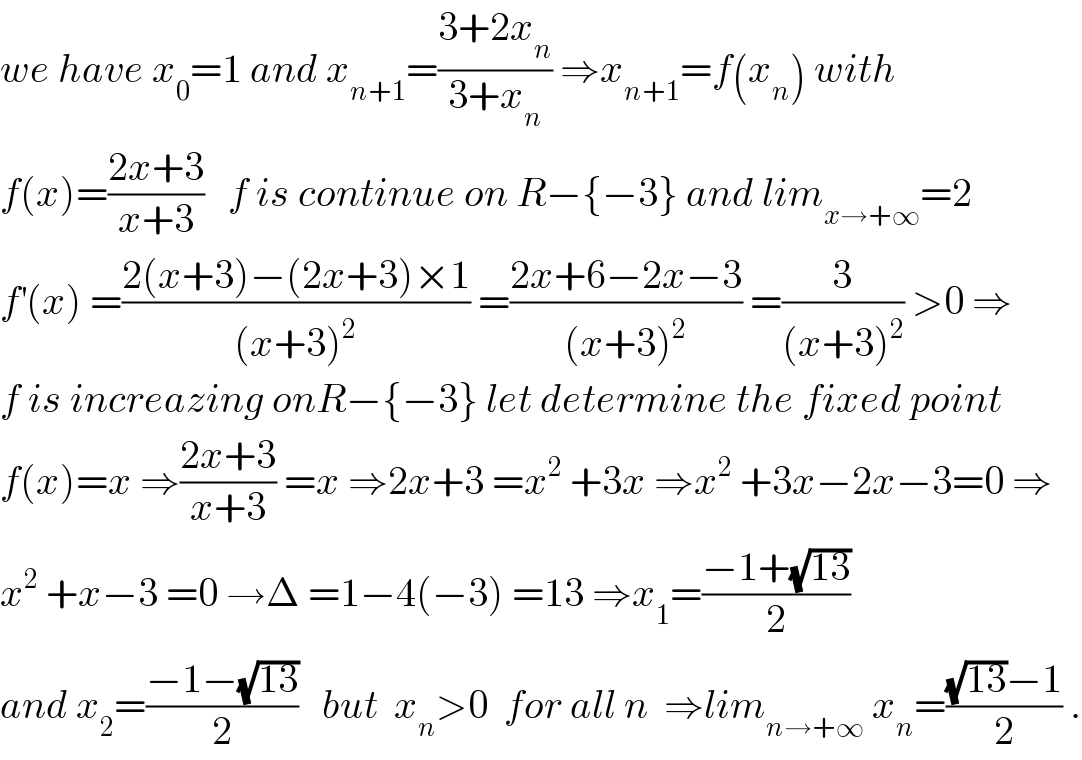
Question and Answers Forum
Question Number 64047 by aliesam last updated on 12/Jul/19

Commented by mathmax by abdo last updated on 12/Jul/19

Commented by aliesam last updated on 12/Jul/19

Commented by mathmax by abdo last updated on 12/Jul/19

| ||
Question and Answers Forum | ||
Question Number 64047 by aliesam last updated on 12/Jul/19 | ||
 | ||
Commented by mathmax by abdo last updated on 12/Jul/19 | ||
 | ||
Commented by aliesam last updated on 12/Jul/19 | ||
 | ||
Commented by mathmax by abdo last updated on 12/Jul/19 | ||
 | ||